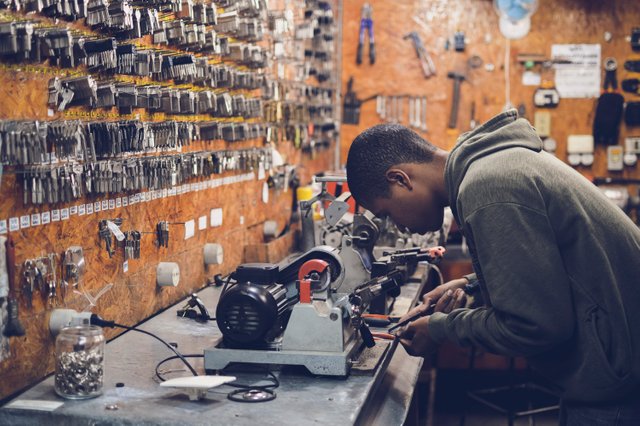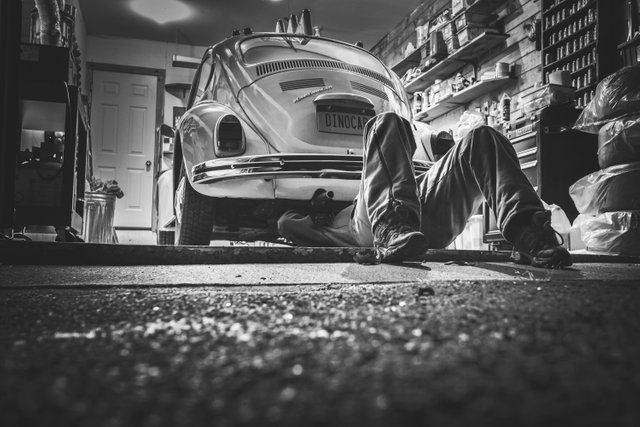Do you have an emergency basket ?
Do you have an emergency basket ?

One of the best scenes in the movie Rounders with Matt Damon and Edward Norton involves no poker at all. It’s when the main character Mike McDermott goes through the different stashes in his apartment to get the cash he saved on the side to gamble all of it.
An emergency basket is just that: a reserve of cash that you set aside and don’t touch unless you need to. (you don’t have to hide it in your poker books by the way…)
Why do I need a stash/emergency basket/rainy day fund ?

When I work with people who want to improve their financial health, one of the first goals we set is to create an emergency basket. Even though this seems often very difficult or too early; building this cash reserve is one of the pillars of a healthy financial situation.
Having some cash on the side allows you to sleep better at night.
And when you are struggling with your finances, this is a must-have.
Building a cash reserve that will be used when something happens, gives you the power to take those hits.
When you have a nice budget and a beautiful financial plan, every dollar is accounted for. You are proud of your newfound control.
Then, what usually happens is that after a couple months working on your debt-reducing, savings and investing goals, something will happen. Your car breaks down, your laptop dies on you, you need a plumber or you are getting sued by this crazy neighbour.
Basically life happens.
And you will always use your emergency fund.
Because life... always... happens. (#micdrop)
A time will come where you will badly need this cash, and you will need it right away.
Money is only a tool. It will take you wherever you wish, but it will not replace you as the driver. – Ayn Rand
How much money should I put in my emergency basket ?

It mostly depends on how “safe" you want to feel. We all have a different feeling of how much money we need to feel OK.
Most people need a couple months of expenses covered to feel better, some others just need a few hundreds in cash to take care of the unexpected. There's also people who want enough money to live without any income for at least a year.
A good rule of thumb is to plan for the next most likely “shit” that will happen. Just look at your last three unexpected expenses and use it as a basis.
How do I build one ?

You start small. And you also want to make it your priority. Any extra income or saved money should go first into your emergency basket.
Why ? Because if you postpone it and start doing something else with your money, the next unplanned expense will be a big financial blow. You might have to use credit or even overdraft because whatever happens will be urgent and will need to be taken care of right away. It always does.
Whatever your goal is for your emergency fund, set a short term goal. I find that 3 to 6 months works best to stay focused and reach a meaningful amount.
Divide up the total amount you want to reach in tiny time units. It can be months, weeks or even days. If you need to save 1200 dollars in 6 months, it sounds much easier to save 50 bucks per week for 24 weeks.
You might need to use this money before your basket is complete. That’s ok, the fund is made for emergencies, so use it if it’s an emergency.
What’s an emergency you ask ? An emergency is what you say it is, according to your criteria. (yeah I know: duh!)
It’s a good idea to make a list of what constitutes an emergency for you before starting your emergency fund to avoid this kind of dilemma in the future: “Shit I forgot about my brother's birthday ! Wait I have this extra cash for emergencies…” Bye bye emergency fund !
I can't tell you what is an emergency because it is different for everyone. Someone might absolutely need to change their laptop because they need it for work while some others cannot survive without their espresso machine...
What happens when I actually use my emergency basket ?

When you reach in your custom-made stash, wether it’s a real one or in an account, you will first feel warm and smart and say something like: “Yes, I am so smart !”
Unfortunately, you will then find yourself with a diminished or maybe depleted fund and we don't want that.
No worries. You can either use the money from other accounts (provided you know what you are doing with your money) to replenish it or just work back your way up as you previously did with small increments.
Don’t underestimate the “sleeping well at night” effect of the emergency fund. When fighting debt and overspending, being able to work on a simple short term goal that has an immediate impact on your daily life is huge. It gives you more control over your finances and it feels great.
It is also surprising to see how many people who consider themselves wealthy or fortunate, don’t have any cash available in case something happens. This has nothing to do with how much money you make or how much your net worth is. And it also does not have anything to do with your ego or believing the economy could collapse tomorrow...
Here’s a quick summary if you want to get started on your emergency basket:
- look at your last 3 unplanned expenses and decide how much cash you want to save in your fund
- choose a short term deadline (3-6 months) and divide the whole period in 1 or 2 weeks periods, calculate how much money you need to save for each period
- keep a reminder in your home/office/car that will keep you motivated until you reach the desired amount
Let me know in the comments if there is any topic you'd like to know more about !
Bonjour, I am Guillaume.

If you want to know more about personal Finance you can check my other articles here and if you want to read about personal development and self coaching tools, go there.
Love this advice. Well explained, to the point, and easy to incorporate into my life. Creating an emergency fund for myself, was one of the most stress relieving things I'd ever done. I'd love to read more articles on personal finance. Great work.
This is information I can take straight to the bank!
Thanks @guilaume-pj